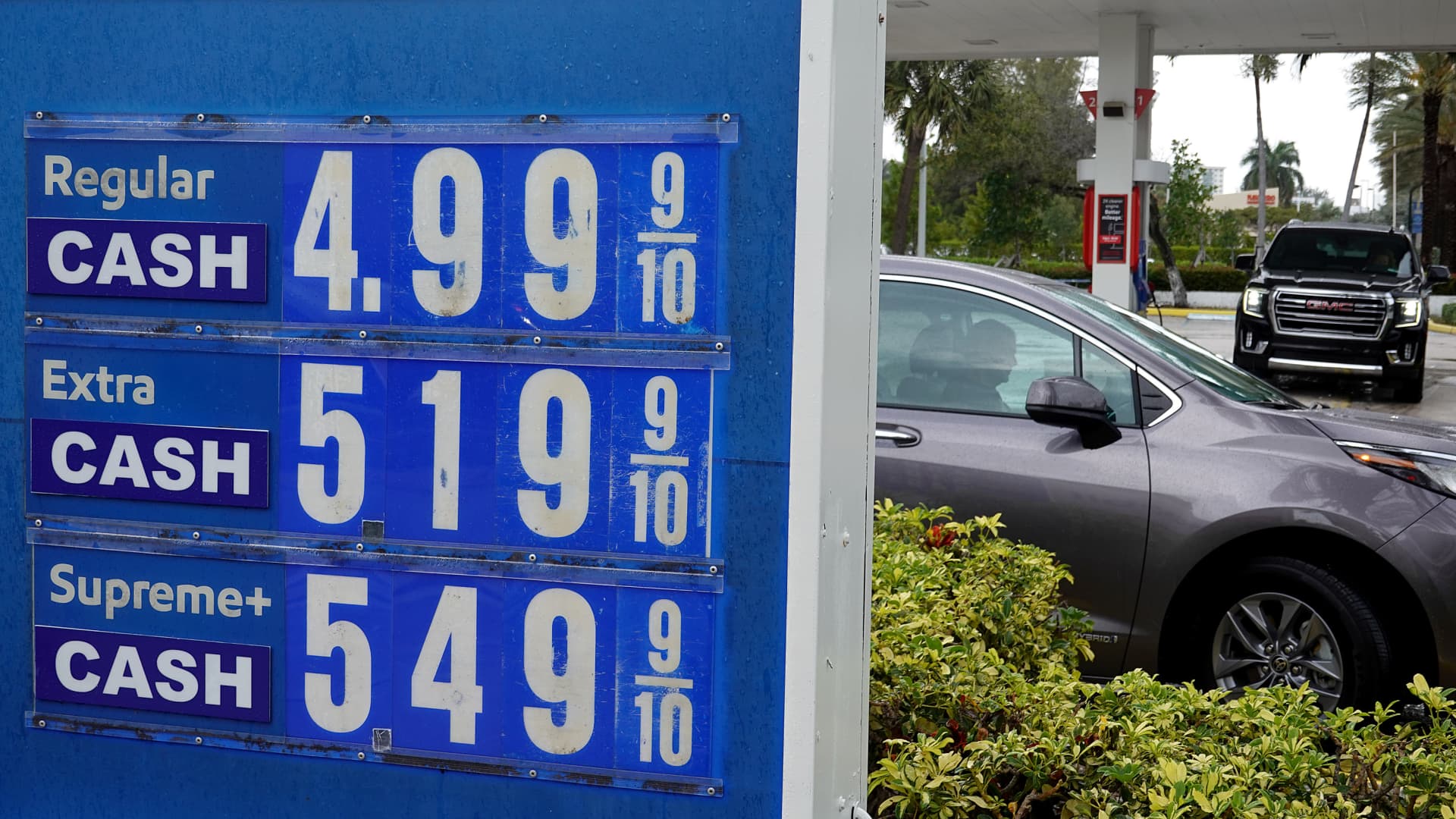Ford Ends Leasing Buyout Provision For Electric Vehicles

It used to be that leasing a car was a way for some people to drive more car than they could afford if they were to buy it outright. And it allowed dealers to obscure lots of fees, up-charges, and extras in the paperwork. For all practical purposes, the lease customer only cares about one thing — the monthly payment.
One of the advantages was the person leasing the car could purchase it at the end of the lease period for a predetermined price. A lot of people liked that degree of certainty. Leasing was good for dealers because it encouraged people to get a new car every two to three years, instead of driving it until the wheels fell off. It was a way of pumping up the market for new cars and provided a good supply of off-lease cars for dealers to stock their used car lots with. In other words, everyone was happy.
But a funny thing happened, thanks to the Covid pandemic. Suddenly, supply chain issues made new cars harder to come by, which in turn drove up the price of used cars. For those who had leased their vehicles, they found they could make a handsome profit by buying the car for the agreed upon price at the end of the lease and then reselling at a profit — sometimes a significant profit — in the superheated used car market.
Well, if there’s one thing the auto industry is good at, it is maximizing the amount of money it realizes from every opportunity. Having private parties profit from being in the right place at the right time doesn’t sit well with the industry. They think of those profits as money that rightfully belongs to them. So, they have come up with a plan. Many new leases now prohibit lease customers from buying their cars when the lease is over.
Tesla was one of the first companies to do this. At first the policy applied only to Model 3 sedans, because in theory the company was going to make all those off-lease cars the basis of its robotaxi fleet. Then, early this year, the word came down from on high that all leased Teslas must now be returned to the company.
The mercurial Mr. Musk may be raging in the press about the company losing billions, but in fact, the company is making a tidy profit reselling its off-lease cars in the used car market. Musk and his minions are anything but dumb.
Now, Autoweek reports that Ford has sent a letter to its dealers eliminating the end-of-lease purchase option for the F-150 Lightning, Mustang Mach-E, and E-Transit van — yup, all 100% electric vehicles. In the plainest language possible, Ford’s new prohibition tells lessees, “you do not have the option to purchase the Vehicle at the end of the lease term.” The change took effect on June 15 in 37 states and will be enacted in the remaining 14 states plus the District of Columbia by the last quarter of this year. Cars Direct was the first to catch wind of the new policy.
It’s For Your Own Good!
Ostensibly, the change is a step toward Ford’s pledge of carbon neutrality by 2050 and an industry-wide effort to lower the MSRPs of EVs. The letter explained to dealers, “The purchase of the BEV Lease is to aid in our goal of delivering carbon neutrality by 2050 by controlling the vehicle battery through its life, keeping it in the Ford network. Ford Motor Company is committed to making Battery Electric Vehicles (BEVs) more sustainable and affordable for our customers by localizing the complex battery supply chain network, creating recycling options for end-of-life vehicles, and increasing U.S. battery production.”
That last part may be the critical feature. Companies like Redwood Materials — which has attracted a $50 million investment from Ford — are finding they can recover and recycle 95% of the chemicals and materials in an EV battery and use them to make new batteries. The upshot is, the company sees gold in them thar hills in the form of precious commodities that they want to control for themselves.
Maybe there’s nothing ulterior about that. Maybe if the world is to transition to battery electric cars, there aren’t enough raw materials available at affordable prices to manufacture as many as the world will need. But then again, maybe this is an extension of the paradigm shift that has happened with computer software in that shiny new EV of yours. Do you, the customer, own it, or does the manufacturer continue to own it even though you paid the purchase price of the car when you bought it?
As the EV revolution rolls forward, it seems we the consumers are only renting much of the vehicles we thought we are buying. The programming belongs to the manufacturer and now much of the battery does too. Are we seeing a trend here?
Last year, GM and Honda began mandating that lessees who wanted to sell their vehicles at the end of their leases had to sell them back to the automakers at the price in the lease contract. If anyone was going to take advantage of a pressurized used car market, it was the companies and not the customers.
Ford reportedly has also informed its dealers that they may insert language into the sales contracts for F-150 Lightning pickup trucks that prevents buyers from reselling the vehicles within 1 year of the original purchase date. We don’t know how many dealers are doing so, but there are reports of nearly new EVs crossing used car auction blocks at prices considerably more than the original purchase price, something that makes dealers frown.
Things Are Changing
Tesla shook up the automotive industry with its model of selling directly to customers over the internet, something that dealer associations oppose with every fiber of their being. They like to puff out their chests and tout the contributions they make to the community through Little League and Pop Warner sponsorships and such, but the truth is, they have what amounts to a monopoly that should have been outlawed years ago.
Ford itself has hinted that it might like to try a little of that online sales strategy itself. It is simply too costly to have hundreds of unsold cars and trucks on dealer lots waiting for buyers to discover them. So the relationship between manufacturers and dealers is coming under renewed scrutiny as well, as everyone tries to figure out how to make money in the brave new world of electric cars.
Interesting times for buyers, dealers, and manufacturers ahead. Please keep your seatbelt fastened until the ride comes to a complete stop!
Check out our brand new E-Bike Guide. If you’re curious about electric bikes, this is the best place to start your e-mobility journey!
Appreciate CleanTechnica’s originality and cleantech news coverage? Consider becoming a CleanTechnica Member, Supporter, Technician, or Ambassador — or a patron on Patreon.
Advertisement
 This post has been syndicated from a third-party source. View the original article here.
This post has been syndicated from a third-party source. View the original article here.





